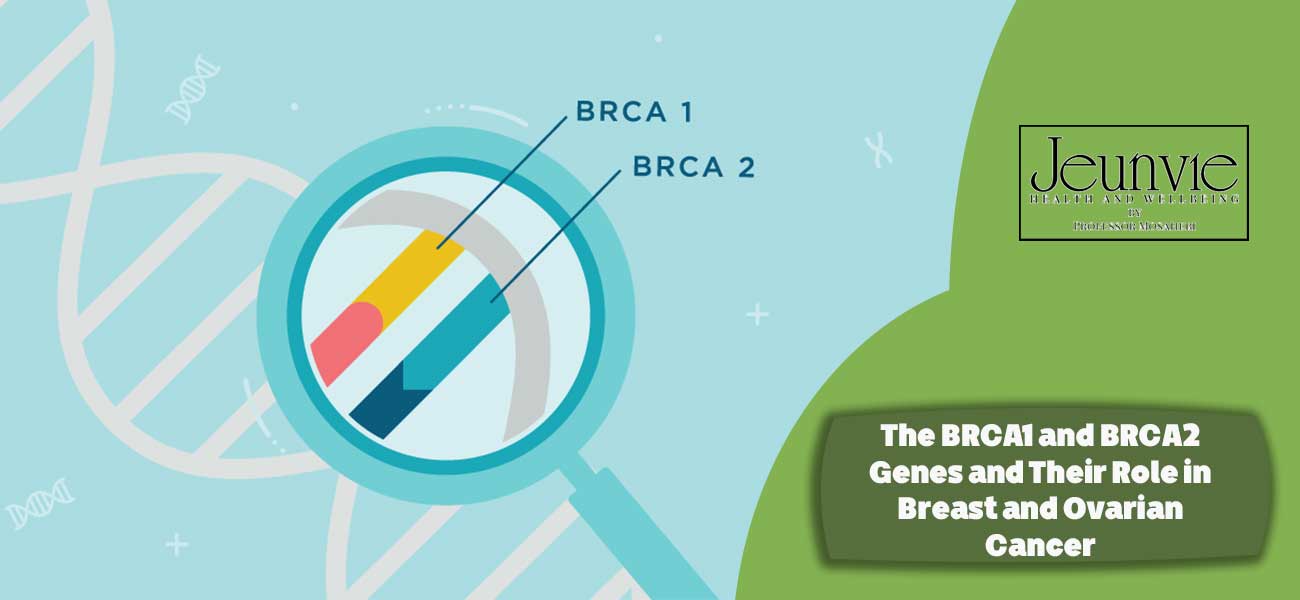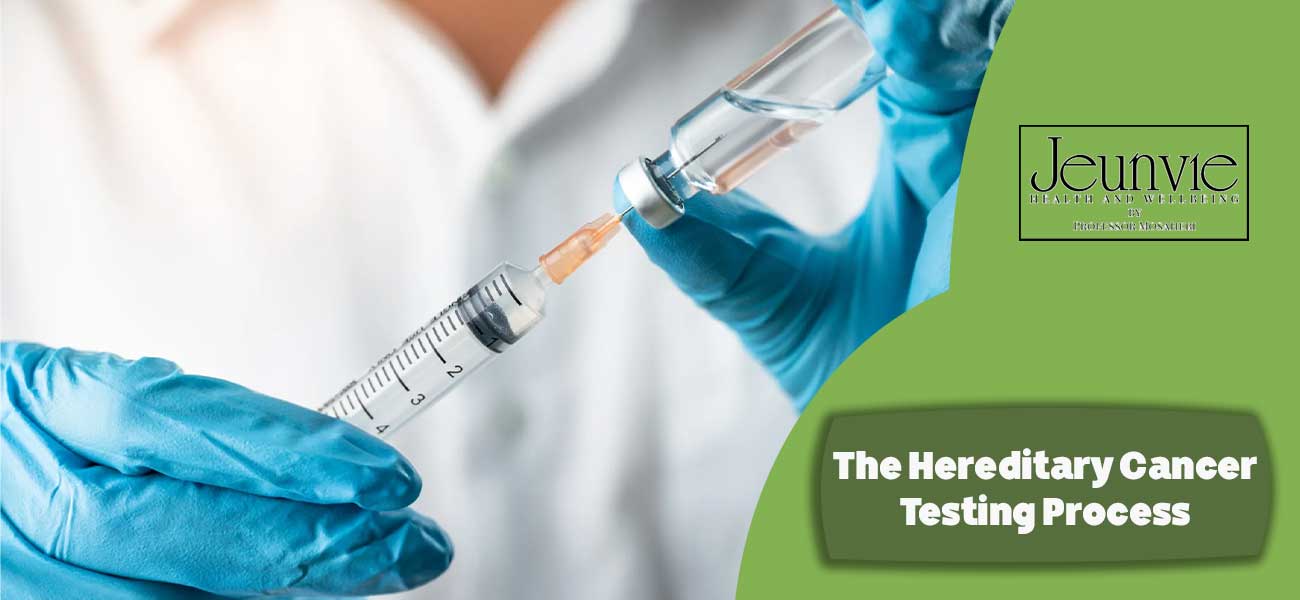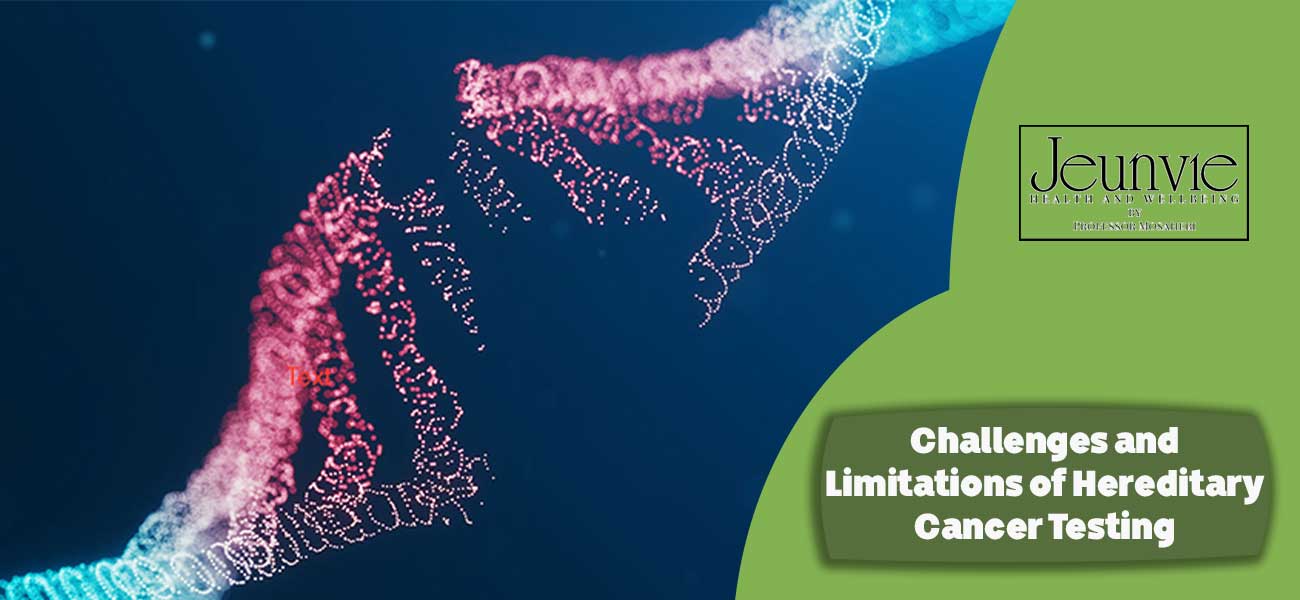Hereditary Cancer Testing
Hereditary cancer testing involves a genetic analysis of an individual to identify genetic mutations linked to cancer. These tests are particularly significant for individuals with a family history of cancer. By identifying inherited mutations, the risk of developing specific cancers, such as breast, ovarian, and colorectal cancer, can be better understood, allowing for appropriate preventative measures to be taken.
Hereditary cancer testing empowers individuals and families to become more informed about their health and, with suitable counselling, to make necessary plans for prevention or treatment. In today’s world, with advancements in science and technology, genetic testing has become an invaluable tool in health management.

Hereditary Cancer: Concept and History
Definition of Hereditary Cancer and Its Distinction from Non-Hereditary Cancers
Hereditary cancer refers to a type of cancer that is passed down through generations due to inherited genetic mutations. These mutations can be transmitted from parents to children, significantly increasing the likelihood of developing certain cancers. For example, mutations in specific genes, such as BRCA1 and BRCA2, have been shown to elevate the risk of breast and ovarian cancer in women.
In contrast, non-hereditary cancers arise from environmental factors or lifestyle choices, and are not linked to inherited genetics. These cancers often develop due to exposure to carcinogens, infections, or other risk factors, including smoking, obesity, and a sedentary lifestyle. Generally speaking, hereditary cancers tend to be more prevalent within families, whereas non-hereditary cancers typically occur sporadically and are influenced by external factors.
Historical Overview of Research on Hereditary Cancer
Research into hereditary cancer testing dates back several decades, beginning with studies of families that have a history of cancer. In the 1960s, scientists began to focus on the genetic influences that contribute to cancer development. These early investigations revealed that certain types of cancer could be inherited directly.
As technology and genetic science advanced over the following decades—particularly with the advent of DNA sequencing techniques—researchers identified specific genetic mutations associated with an increased risk of hereditary cancers. These advancements led to the confirmation of key genes, such as BRCA1 and BRCA2.
Consequently, ongoing research into hereditary cancer has gradually enhanced our understanding of the genetic factors that influence cancer development. This has resulted in the establishment of hereditary cancer testing and counselling, which are now recognised as essential tools in cancer prevention and management.

The BRCA1 and BRCA2 Genes and Their Role in Breast and Ovarian Cancer
The BRCA1 and BRCA2 genes are two significant genes in the context of hereditary cancer testing. These genes are responsible for producing proteins that play a crucial role in DNA repair and maintaining the genetic stability of cells. Mutations in these genes can diminish the body’s ability to repair DNA damage, consequently increasing the risk of hereditary cancer, particularly breast and ovarian cancer.
Women with mutations in the BRCA1 or BRCA2 genes are up to 70% more likely to develop breast cancer and up to 40% more likely to develop ovarian cancer. Research has indicated that these mutations can also increase the risk of other cancers, including prostate and pancreatic cancer. For this reason, hereditary cancer testing to identify BRCA1 and BRCA2 mutations is particularly important for individuals with a family history of cancer.
Other Genes Associated with Different Types of Cancer
In addition to the BRCA1 and BRCA2 genes, other genes are associated with various types of hereditary cancer. One example is Lynch syndrome, which is caused by mutations in MMR (mismatch repair) genes. This syndrome significantly increases the risk of colorectal and endometrial cancer.
Other genes associated with hereditary cancer testing include:
- TP53: Mutations in this gene can lead to Li-Fraumeni syndrome and an increased risk of multiple cancer types, including breast, brain, and pancreatic cancer.
- PTEN: Mutations in this gene are associated with cancer-related disorders such as Cowden syndrome and an increased risk of breast and thyroid cancer.
- CDH1: Mutations in this gene are associated with an increased risk of diffuse gastric cancer and lobular breast cancer.
Identifying and examining these genes in hereditary cancer testing helps clinicians assess the risk of cancer in individuals with a family history and develop effective preventive strategies.

The Hereditary Cancer Testing Process
Stages of Genetic Testing: From Counselling to Sampling and Result Interpretation
The process of hereditary cancer testing comprises several key stages designed to assess the risk of inherited cancers. These stages include:
- Genetic Counselling: The initial stage involves a consultation with a genetic counsellor, during which the individual or family discusses their medical and family history. This counselling session assists in identifying the need for genetic testing and helps select the appropriate test.
- Sampling: Following the decision to proceed with testing, a biological sample (usually blood or saliva) is collected from the individual. This sample contains DNA, which will be used for further analysis.
- Genetic Analysis: The collected sample is dispatched to a laboratory where genetic analyses are conducted to identify mutations and alterations in genes associated with cancer.
- Result Interpretation: The test results are typically made available to the individual after several weeks. These results provide crucial information regarding the presence or absence of genetic mutations linked to hereditary cancer.
- Discussion of Results: After receiving the results, the genetic counsellor reviews the findings with the individual, helping them understand the implications of the results and the options available for prevention or treatment.
Types of Genetic Tests: Single-gene Tests, Multi-gene Panels, and Sequencing
Various genetic tests are available to assess the risk of hereditary cancer, including:
- Single-gene Tests: These tests focus on examining one or a few specific genes. For example, testing for BRCA1 and BRCA2 is utilised to identify mutations associated with breast and ovarian cancer.
- Multi-gene Panels: These tests involve examining multiple genes simultaneously and are designed to identify various mutations associated with different types of cancer. Such tests can provide more comprehensive information regarding an individual’s risk of developing multiple cancers.
- Sequencing: This more advanced approach involves analysing the entire genome or specific regions of DNA. Sequencing allows for the identification of rare mutations that may not be detectable through single-gene or multi-gene panel tests.
By employing these tests, the risk of hereditary cancer can be assessed more accurately, enabling the formulation of effective preventive measures.

Genetic Counselling: Necessity and Methods
The Role of Genetic Counselling Before and After Testing
Genetic counselling plays a vital role in the process of hereditary cancer testing. This counselling, particularly prior to testing, aids individuals and families in acquiring accurate information regarding the testing procedure and its potential implications. Genetic counsellors assess an individual’s medical and family history and assist them in comprehending the necessity for hereditary cancer testing.
Post-test counselling is equally crucial. At this stage, the counsellor reviews the results with the individual and helps them understand the implications of the findings for their personal and familial health. This interaction empowers individuals to make more informed decisions regarding prevention or treatment options.
The Importance of Discussing the Risks, Benefits, and Limitations of Testing
Discussing the risks, benefits, and limitations of hereditary cancer testing is of paramount importance. During these counselling sessions, genetic counsellors provide individuals and families with accurate information concerning the risks associated with testing, such as the possibility of false-positive or false-negative results. These discussions help individuals confront the realities and make more informed decisions.
Furthermore, genetic counselling presents an opportunity to explore the benefits of hereditary cancer testing. Identifying genetic mutations can enable individuals to implement effective preventive measures and take advantage of improved treatment options.
Click to read this article : Genetic counseling

Benefits of Hereditary Cancer Testing
Identifying Genetic Risks
Hereditary cancer testing assists in identifying genetic risks. This information empowers individuals and families to implement effective preventive measures, such as regular check-ups or preventive surgery.
Enabling Personalised Treatment
The identification of genetic mutations aids healthcare professionals in selecting more effective treatments. This personalisation of treatment can reduce side effects and enhance the efficacy of therapies.
Increasing Family Awareness
Hereditary cancer testing raises family awareness regarding inherited risks. This knowledge can facilitate better health decisions and promote a culture of prevention within families.

Challenges and Limitations of Hereditary Cancer Testing
Ethical and Psychological Implications
Hereditary cancer testing can present both ethical and psychological challenges for individuals and their families. Positive or negative results may lead to emotional distress, anxiety, or guilt. Individuals might experience a fear of developing cancer or worry about the implications of the results for other family members. Such emotions necessitate emotional support and appropriate counselling to aid individuals in coping with the test outcomes.
Privacy Concerns
The utilisation of genetic information raises significant privacy concerns. Individuals may fear the misuse of their genetic data or its accessibility to insurance companies or employers. Safeguarding genetic privacy should be a priority to ensure that individuals feel secure and are able to make informed decisions regarding genetic testing and its implications.
Uncertainty and Interpretation of Results
Uncertainty in interpreting test results constitutes another challenge. Results can be complex, and not everyone may possess the requisite knowledge to fully comprehend them. Positive results may not necessarily indicate a high risk, while negative results could reflect the absence of known mutations, even though other risks might still exist. This situation highlights the need for appropriate counselling to assist individuals in understanding and interpreting the results and their implications.

The Future of Hereditary Cancer Testing
Scientific and Technological Advancements
The future of hereditary cancer testing is profoundly influenced by scientific and technological advancements. Recent improvements in laboratory methodologies and innovative techniques have significantly enhanced the accuracy and speed of genetic testing.
Emerging Trends and Ongoing Research
Current research continues to investigate the genetic causes and mechanisms underlying cancer. Notable emerging trends include the development of new genetic panels and the identification of novel mutations.
Importance of Genetic Counselling
There is an increasing emphasis on genetic counselling, which aims to empower individuals to make informed decisions based on a comprehensive understanding of their condition.
Given these advancements, hereditary cancer testing is set to become an essential tool in the prevention and management of cancer in the future.
Click to read this article : What is genetic testing and why should it be done
In Conclusion: A Bright Future for Hereditary Cancer Testing
Ultimately, with ongoing advancements in genetics and technology, hereditary cancer testing is set to become a cornerstone of cancer prevention and management. These tests not only identify genetic risks but also play a crucial role in enhancing public health by facilitating personalised treatments and increasing family awareness. In conjunction with these advancements, the significance of genetic counselling in supporting individuals and families in making informed decisions cannot be overstated. Thus, the future of hereditary cancer testing appears promising and hopeful.
Reviews
Contact
- Our Clinic : 4th Floor, 93-95 Wardour Street W1F 0UD
- phone: 07843 055357
- email:info@jeunviewellbeing.health
- Copyright 2025 Jeunvie Health and Wellbeing
